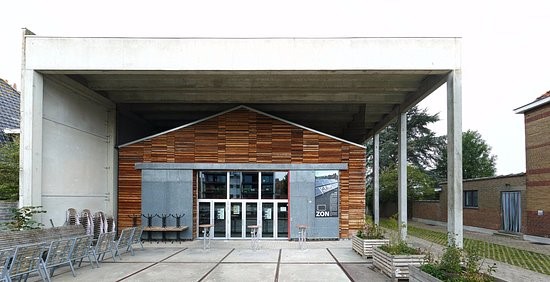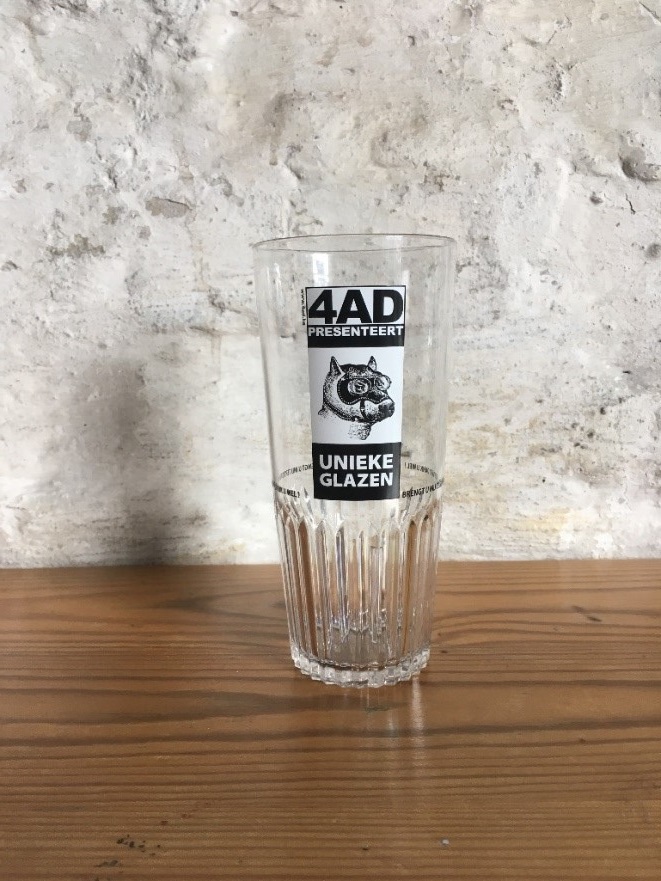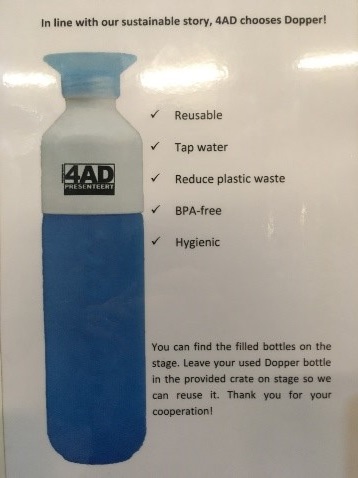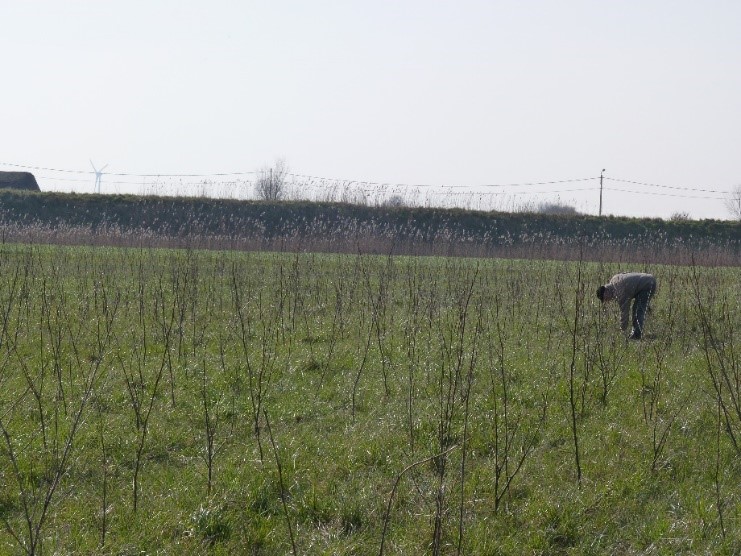SUSTAINABLE PRACTICES

context
Sustainability is the key word to protect and preserve both our natural as well as our human environment. It is globally acknowledged that these are under tremendous pressure in this day and age. With regard to sustainable practices (be it on an ecological or social level), music venues have a distinct responsibility towards society in general, but also more specifically to audiences, artists, and towards the communities they are located in. On one side, this responsibility derives from their societal function as publicly accessible cultural meeting places; on the other, it has its roots in the significant ecological (and social) footprint of a music venue – caused by, for example, audience (and artist) mobility, energy consumption, catering, etc. In the case of 4AD, for example, a study showed that the club – though rather small-scale (capacity of 250 people) – emitted 66 tons of CO2 in 2012 (40% of which is due to audience mobility). Sustainable practices help to limit this footprint, are central to sustainable development of an organization, and raise awareness among audiences, artists or other people connected to the venues, and of course other music venues.

Implementation at 4AD
4AD was founded over three decades ago, in 1988. The venue is rooted in the 80s DIY music scene and has therefore been socially engaged since the very beginning. During the following decades the club professionalized, but always carefully guarded its initial philosophy. Along with their DIY spirit, sustainability on all levels is one of their core values. Year after year the club reduced its carbon emissions by all sorts of actions, eventually becoming the first carbon-neutral culture organization in Flanders (in 2016) by planting its own forest.
The basis for true sustainable development is a shared sustainable mindset among the venue’s employees (and by extension its volunteers, audience, etc.). From this mindset, ideas for actions and improvements grow continuously and organically. Operational processes are consistently assessed, pros and cons of alternative methods are weighed, with as a goal the most ecologically or socially sustainable result or way of working, without sacrificing quality, effectiveness and workability.
In the case of 4AD, their mindset led to the below mentioned actions, carried out over the course of the last 30 years. A lot of the ideas come from the fixed crew and are executed in-house, not seldom with the help of their volunteers. For some of the actions they rely on the help or expertise from partners or, in the case of the 4AD forest, on public crowdfunding.

Infrastructure:
- Construction of the venue: recuperation of original building, completely soundproof venue and rehearsal spaces, 100% wheelchair accessible, additional insulation with ecological cellulose and timber waste.
- Renovation of the artist hotel: roof and outer wall insulation, ecological paint, 100% wheelchair accessible.
- Resources: solar panels, rainwater tanks, intelligent heating system.
- Green spaces and bio-diversity: garden, plant trays, insect hotel.
Use of sustainable products:
- Hygiene: biological (enzyme-based) cleaning products, C2C toilet paper
- Furniture: secondhand, upcycled, DIY
- Technical equipment: eco-label, LED stage lights
Catering: vegetarian, local, seasonal, organic, fairtrade; re-usable cups for audience and re-usable drinking bottles for artists (see images), free tap water, no plastic drinking straws, beer tanks (500 L)
- Waste: composting bin, chickens, strict separation system
- Office: low-printing policy, ecological ink, FSC paper, no posters/flyers for individual shows
Mobility:
- Electrical carrier cycle for employees
- Charging points for e-bikes and e-cars
- Carpooling
- No one-off shows (esp. not by airplane!)
- 4AD forest: planting trees to compensate carbon emissions due to a.o. audience mobility (see image)
Health:
- Noise level limit (100 dB)
- Free earplugs + group purchase of custom-made earplugs
- Flat personnel structure
- Confidential counsellors
Social actions:
- Annual neighborhood party
- Community service
- Propagating a low threshold
- Organizing the local Food Assembly (supporting short supply chain)
- Eco-days (to raise awareness)




Benefits
Beneficiaries: users, audiences, artists, local communities, music venues, Mother Nature.
On a social level, the most of the above mentioned actions have a rather indirect impact. They create an inclusive, responsible, progressive profile through which 4AD has built a good, solid and long-lasting relationship with the local community, artists and audiences. The fact that most actions do not have a direct, visible impact on the concert audience, for example, can be seen as very positive: it means choosing for sustainable practices does not damage the quality or experience of shows ( quite on the contrary!).
With regards to ecology, the impact of the club’s sustainable practices has been nothing but positive, as its carbon footprint was virtually reduced to zero. 4AD has become stronghold and a household name in the field of sustainable and ecology in culture, enabling them to disseminate their philosophy and practices on both a national as international level – be it to or together with partner organizations in co-operative projects (such as DEMO and SCENERGIES) or to stakeholder networks (PULSE, Live DMA). The venue’s sustainable practices have also proven to have a positive economic impact in the long run (e.g. solar panels, rainwater tanks, re-usable cups).

Challenges
For bigger projects like infrastructural modifications it can be hard to find the necessary financial resources. 4AD was helped a lot in realizing their actions by governmental grants, funding programs (e.g. from the EU) and crowdfunding campaigns.
With the right mind-set and a proper amount of will and drive, any organization – small or large – can grow more ecologically and socially sustainable. The extent of sustainable development depends largely on creativity in finding appropriate solutions, on the sense of ecological and social responsibility and of course on available resources.

Resources and other examples
- Digital Safari on Sustainability. Episode 1: 4AD (PULSE/Live DMA): https://vimeo.com/485900198
- Sustainability at 4AD: https://www.4ad.be/nl/duurzaamheid (only in Dutch for the moment)

